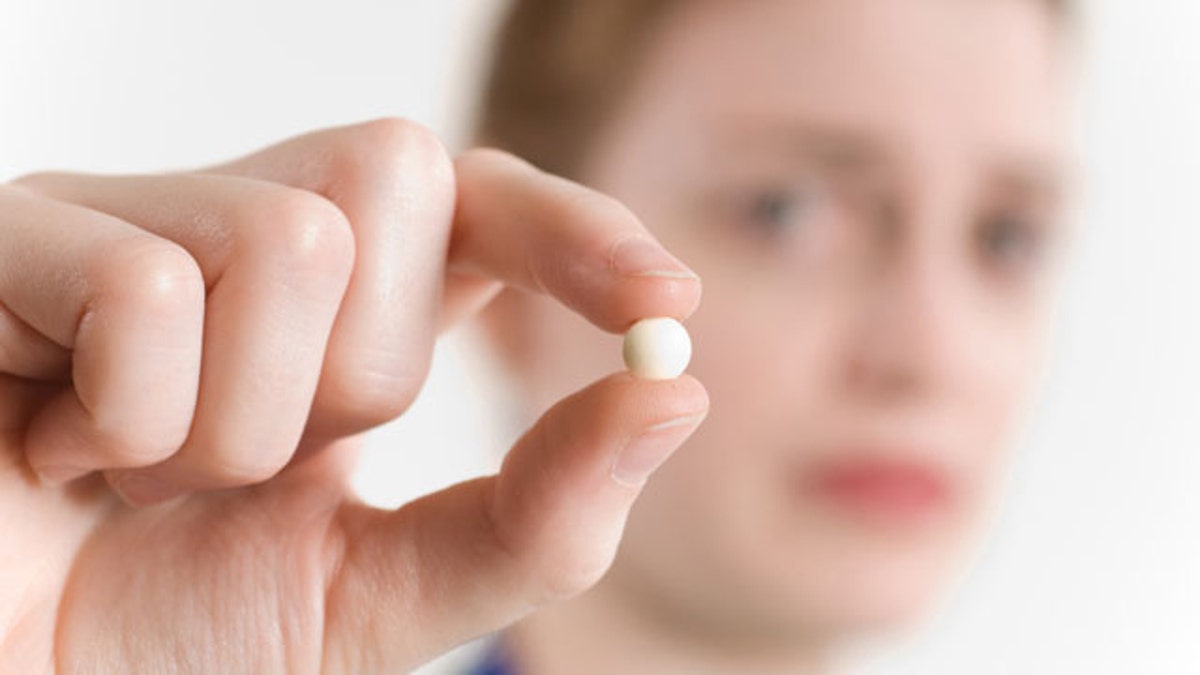
In a four-year study of newly menopausal women taking hormone therapy, mental sharpness did not get better or worse. Taking certain estrogens did seem to improve mood, though.
Hormone therapy has been linked to mental decline for women over age 65, the authors write in the new study, but that did not happen for this group of U.S. women who were mostly in their fifties.
“Given that the women enrolled in the trial were young and healthy the cognitive findings are not particularly surprising, but the mood findings were unexpected,” said lead author Carey E. Gleason of the University of Wisconsin in Madison.
In the study, mood improved among women taking equine estrogen tablets but not among those using natural human estrogen transdermal patches.
The findings support current prescribing practices, Gleason said. The Food and Drug Administration currently recommends that menopausal women who use hormones to treat hot flashes, vaginal dryness or pain during sex use the drugs at the lowest beneficial dose and for the shortest amount of time necessary. The hormones may increase the risk of blood clots, heart attacks, strokes, breast cancer and gall bladder disease, according to the FDA.
For the new study, researchers used a randomized placebo-controlled trial of almost 700 women an average age of 53 who were about a year past their last menstrual period when the study began, between 2005 and 2008.
The women were divided into three groups, with some taking 0.45 milligrams per day of oral conjugated equine estrogens (o-CEE) plus 200 milligrams per day of micronized progesterone (m-P) for the first 12 days of each month, some women randomized to receive 50 micrograms per day of transdermal estradiol (t- E2) via a patch plus the m-P dose, and the rest receiving placebo pills and patches.
At the beginning, more than 40 percent of women reported moderate to severe hot flashes, which had reduced in all groups six months into the study, though symptoms decreased more in the o-CEE and t-E2 groups compared to the placebo group.
Over time, that difference shrank when hot flashes abated for women in the placebo group as they matured through postmenopause.
The women had cognitive and mood evaluations four times over the four-year study period, including tests of verbal learning and memory, attention to auditory information and working memory, visual attention, executive function and mental flexibility. The women also filled out questionnaires regarding their feelings of anxiety, depression, hostility, fatigue, vigor and confusion.
Performance on cognitive tests over time did not differ between the groups of women taking hormones and the placebo group, as reported in PLOS Medicine.
“This is really important, it reassures women who want to use hormone treatment around the time of menopausal transition that it is not going to harm their memory,” said Susan M. Resnick of the National Institute on Aging in Baltimore, Maryland, who was not part of the new study.
Hormones are the treatment of choice for many women who experience menopausal symptoms, said Mark A. Espeland of Wake Forest School of Medicine in Winston-Salem, North Carolina, who also was not part of the new study.
Women needn't feel that they are sacrificing their cognition if they choose to use hormone therapy, Gleason said.
A previous study found that women have both subjective and objective cognitive problems during the menopausal transition, and these can be very troublesome for some, but they do go away after menopause, she said.
Hormone therapy is highly effective for treating menopausal symptoms and helps prevent bone loss, she said.
“Hormone therapy continues to be a recommend therapy for the treatment of menopausal symptoms and appears to be safe for women’s cognition if used for several years following menopause,” Espeland told Reuters Health by email. “In women ages 65 and older, it is linked to long-term deficits in cognitive function and increase risk for cognitive impairment.”
Women in the equine estrogen group showed improvements in depression and anxiety symptoms over the four years of treatment compared to women on placebo and those taking estradiol, the human hormone.
The women in the study were not clinically depressed, and hormone therapy should not be used as a first-line antidepressant, moreover, Gleason said.
“This helps women make decisions about whether or not they want to use short term low dose treatment the way the FDA has recommended,” Resnick told Reuters Health. “It’s still a personal decision based on a woman’s medical history.”








































